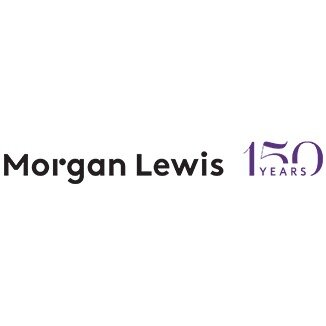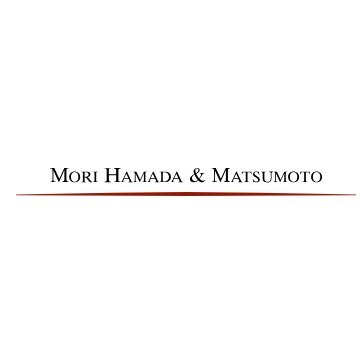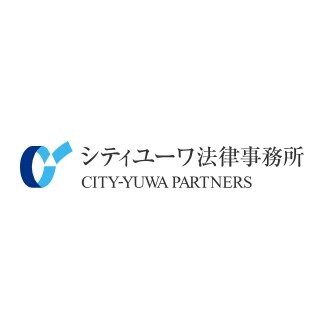Best Corporate Governance Lawyers in Chiyoda-ku
Share your needs with us, get contacted by law firms.
Free. Takes 2 min.
List of the best lawyers in Chiyoda-ku, Japan
About Corporate Governance Law in Chiyoda-ku, Japan
Corporate governance refers to the systems, rules, and processes that oversee and control how companies are directed and managed. In Chiyoda-ku, a central area of Tokyo and home to the headquarters of many Japanese and multinational corporations, corporate governance is especially significant. The Japanese legal framework for corporate governance aims to ensure transparency, accountability, and sustainable growth within business organizations. Compliance with the Companies Act and regulations set by authorities such as the Financial Services Agency is crucial for corporations operating in Chiyoda-ku.
Why You May Need a Lawyer
Legal advice in corporate governance becomes essential in various scenarios. Common situations include resolving internal disputes between board members or shareholders, navigating compliance with evolving local laws, restructuring corporate boards, responding to regulatory investigations, and drafting or revising corporate charters or bylaws. International companies seeking to establish a presence in Chiyoda-ku must also adapt to Japanese regulations and cultural expectations, often requiring expert legal guidance.
Lawyers with expertise in corporate governance can provide clarity on directors’ duties, facilitate shareholder meetings, review conflict-of-interest policies, and help prevent or address issues of fraud or mismanagement. Whether your goal is to maintain best practices or address a crisis, having specialized legal support is invaluable.
Local Laws Overview
Corporate governance in Chiyoda-ku is primarily guided by national laws but local regulations and administrative guidance can impact compliance. The Companies Act (Kaisha Ho) is the main statute regulating company formation, management, and disclosure. The Financial Instruments and Exchange Act imposes additional requirements for publicly listed companies, focusing on transparency and investor protection.
In recent years, the Corporate Governance Code issued by the Tokyo Stock Exchange has set higher standards for listed companies, promoting independent directors, enhanced disclosure, and minority shareholder rights. Companies in Chiyoda-ku must also be mindful of guidelines from the Ministry of Economy, Trade and Industry, and the Japan Fair Trade Commission, which oversee matters like anti-monopoly practices and fair business conduct. Understanding and integrating these requirements in corporate policy is essential for effective governance.
Frequently Asked Questions
What is corporate governance and why is it important in Chiyoda-ku?
Corporate governance is the set of processes and structures by which companies are directed and controlled. In business hubs like Chiyoda-ku, it ensures ethical practices, builds investor confidence, and aligns management actions with shareholders’ and stakeholders’ interests.
What laws regulate corporate governance in Chiyoda-ku?
Key laws include the Companies Act, the Financial Instruments and Exchange Act, and compliance with the Tokyo Stock Exchange’s Corporate Governance Code for listed companies. Local ordinances can also influence implementation.
Do I need to appoint outside directors for my company?
For companies listed on the Tokyo Stock Exchange and some larger private companies, recent reforms strongly recommend appointing at least two independent outside directors to strengthen oversight and enhance transparency.
How are shareholder rights protected in Chiyoda-ku?
Shareholder rights are protected by the Companies Act, which grants voting rights, the ability to attend general meetings, and mechanisms to challenge unfair decisions or demand disclosure of information.
What are directors’ main legal duties?
Directors have a duty of care and loyalty, meaning they must act in good faith, avoid conflicts of interest, and pursue the best interest of the company and its stakeholders.
What happens if there is a dispute among board members?
If disputes arise, the company’s articles of incorporation provide procedures for resolution. Serious cases may require mediation, arbitration, or court intervention, especially if shareholder interests are affected.
How does corporate governance address compliance and ethics?
Corporate governance mandates compliance programs, internal controls, and reporting channels to detect and prevent legal or ethical breaches. Companies are expected to foster a culture of compliance.
Are there specific requirements for foreign companies in Chiyoda-ku?
Foreign companies must register a Japanese office or subsidiary and comply with local governance standards, including disclosures and board composition, as set out by the Companies Act and other relevant regulations.
What penalties exist for breaching corporate governance laws?
Violations can lead to administrative sanctions, civil liability, fines, or even criminal charges, depending on the nature and severity of the breach.
How often should companies review their corporate governance practices?
Regular annual reviews, or more frequently if there are significant legal or regulatory changes, are recommended. Periodic third-party audits can help ensure ongoing compliance.
Additional Resources
Individuals and companies seeking more information can consult the following resources:
- Chiyoda-ku Ward Office - assists with local business registrations and regulations
- Japan Fair Trade Commission - oversees antitrust and competition matters
- Financial Services Agency (FSA) - enforces securities and exchange regulations
- Ministry of Economy, Trade and Industry (METI) - issues corporate governance guidelines
- The Tokyo Stock Exchange - supplies listings requirements and the Corporate Governance Code
- Japan Federation of Bar Associations - helps locate qualified corporate law specialists
Next Steps
If you need legal assistance related to corporate governance in Chiyoda-ku, consider the following actions:
- Conduct an initial internal assessment to identify governance or compliance concerns
- Gather relevant corporate documents such as company bylaws, shareholder agreements, and recent meeting minutes
- Contact a lawyer or law firm specializing in corporate law and governance in Chiyoda-ku for a consultation
- Prepare a list of specific questions or issues you want to address with your legal advisor
- Stay informed about any local or national regulatory changes affecting corporate governance
Engaging an experienced legal professional ensures your company remains compliant, efficiently managed, and prepared to handle any governance challenges in Chiyoda-ku’s competitive business environment.
Lawzana helps you find the best lawyers and law firms in Chiyoda-ku through a curated and pre-screened list of qualified legal professionals. Our platform offers rankings and detailed profiles of attorneys and law firms, allowing you to compare based on practice areas, including Corporate Governance, experience, and client feedback.
Each profile includes a description of the firm's areas of practice, client reviews, team members and partners, year of establishment, spoken languages, office locations, contact information, social media presence, and any published articles or resources. Most firms on our platform speak English and are experienced in both local and international legal matters.
Get a quote from top-rated law firms in Chiyoda-ku, Japan — quickly, securely, and without unnecessary hassle.
Disclaimer:
The information provided on this page is for general informational purposes only and does not constitute legal advice. While we strive to ensure the accuracy and relevance of the content, legal information may change over time, and interpretations of the law can vary. You should always consult with a qualified legal professional for advice specific to your situation.
We disclaim all liability for actions taken or not taken based on the content of this page. If you believe any information is incorrect or outdated, please contact us, and we will review and update it where appropriate.














